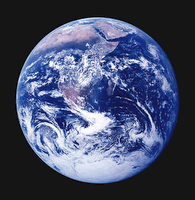This article from earlier in the month appeared in the Courier-Journal. The article on the drought in California is relevant to us, here in New Albany, for a number of reasons: 1. evidence of climate change 2. noteworthy during the week of earth Day 3. validates the logic and exigencies of localism, independent businesses and sustainable communities.
Governor Jerry Brown has imposed sanctions to curtail the use of water in California. The arid state has long been on a knife's edge balanced between verdancy and drought. The great movie, Chinatown, showed through believable fiction, how desperately business interests coveted abundant water. In our part of the country, we worry through bothersome dry spells, but the rains usually come in sufficient volume to bail out farmers and we seldom need to resort to heavy conservation measures to help us through those spells.
For me this particular passage from the article is the money shot:
Retail price spikes are unlikely because of the drought, however. Only a small portion of what shoppers pay is based on what farmers get for their crops -- shipping, handling, packaging and marketing expenses are collectively bigger. Plus, food prices are often set on a global scale of supply and demand, so in a vast world marketplace, California's drought may not be a big factor, Sumner says.
People in California are scrambling to adjust to what seems like the new reality. They are taking steps to dial back water usage through more use of native plants rather than trying to have emerald green lawns. Farm workers are being bounced out by the reduced crop yields. People are beginning to envision a future where a less hospitable climate will erase discrete ecosystems, and place stress on wildlife in general.
Around here, locally, in our own backyards, in our daily routines in our small Midwest city, we can begin, and many have begun, to envision a future where, ' Only a small portion of what shoppers pay is based on what farmers get for their crops' may become a relic of a wasteful, unsustainable past. A friend of mine owns and operates a market that sells a wide range of locally grown produce. His store is open year round, but is naturally more well-stocked during spring, summer and early fall. All the items he sells comes from within a radius of 150 miles. The very nature of his business helps local growers become stronger. Those growers help stand against the collapse of local economies undermined by lost manufacturing jobs, and the devastation that trend has wrought on our economy. The concentration of food production in meteorologically vulnerable parts of the nation makes no sense when we see the ravages of drought in California. Where next will the comfortable past be 180ed into a new reality?
My friend's store doesn't appear to be a ticket to Easy Street. On the contrary, it is a tough, uphill battle trying to push people out of a rut of buying long-distance, insecticide-laden, produce from mega-farms. His produce isn't cheap, but as the article points out, under what passes for conventional agriculture today, only a small portion of the cost of produce goes to the farmer who produced it. Under the model my friend's producers follow, they earn more for their work, and so can more likely be a sustainable player in building a sustainable system, less vulnerable to capricious weather patterns, which obviously, is better for all of us. In a real sense, these producers are fighting for our futures as much as their own. They are helping to build a new infrastructure of sustainability.
Locally grown, or locally produced agricultural products are perhaps more easily perceived as part of a strong, healthy locality. But, in countless other commercial transactions we have the chance to, step by step, build a more vibrant, sustainable locality. These strong, varied, vibrant, prosperous localities are the infrastructure of sustainability. We can take steps here and now to make our own region more responsible, sustainable, and prosperous, by looking at how our daily commercial activities relate to, and affect our planet, which is truly our locality; New Albany's just a Zip Code.
Monday, April 27, 2015
Subscribe to:
Post Comments (Atom)

No comments:
Post a Comment